Chinese politics is undergoing great change
While the ruling system in China, carried over from ancient history, has the features of power combined with moral authority, recent events show that change is happening in Chinese politics. With netizens increasingly challenging the central authority openly, refuting official views and commentaries, will there be greater adjustments to Chinese state-society relations?
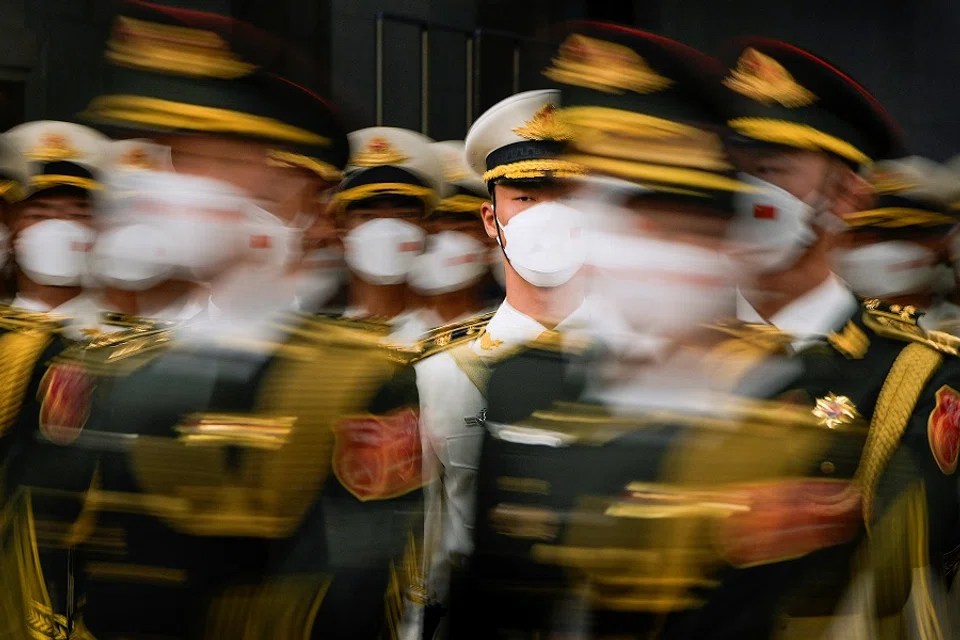
For four decades, the political stability, economic development and progress in other areas that China has achieved have formed a unique landscape in a chaotic world. Quoting Mao's poem, President Xi Jinping said that "the scenery is beautiful solely on our side".
The West tends to assume that such stability is achieved through repression and "stability maintenance expenditure" that exceeds the defence budget. However, things are not that simple when long-term stability is also accompanied by long-term high growth and high support for the Chinese Communist Party (CCP) regime.
When the CCP calls this a "miracle", this is not entirely bragging or being fake; the party's achievements have been repeatedly confirmed by studies by Harvard University and reputable polling organisations. These constitute the basis for the CCP's "system self-confidence".
Recently, however, some unusual signs have appeared in Chinese politics, which not only indicates that politics may enter a period of turmoil, but also signals that the nature and basic characteristics of Chinese politics are undergoing a transmutation.
Unusual signs in Chinese politics
In recent months, one of the hottest topics in the mainland's "self-media" and social media has been the decline of government credibility. In the past, there were many public incidents that made people question the credibility of the government, but they never fundamentally shook the authority of the party and the government. This time is a little different.
A series of events seem to be connecting the dots that portray a comprehensive change: Dr Li Wenliang's whistleblowing at the beginning of the pandemic to his death from Covid-19; a report on the story of the chief of the department of infectious diseases of Wuhan Central Hospital, which was repeatedly purged from the internet but re-emerged in various language translations, pinyin, vertical typesetting, oracle bone inscriptions, Braille, classical Chinese, seal script, Morse code, and other creative versions; the sudden "blank paper protest", the hasty lifting of the three-year lockdowns in China and the ensuing surge of the epidemic and the death of an unknown large number of elderly people.
Most importantly, netizens began to openly challenge the central authority, refuting official views and commentaries without awe.
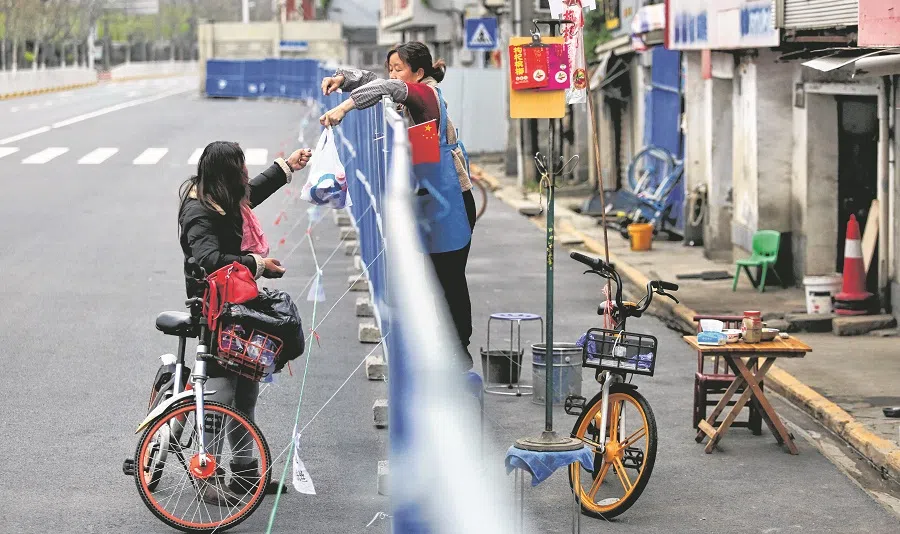
The most recent case is the "mouse-headed duck" incident - a rat's head was found in a dish at a university cafeteria in Jiangxi, but the local food safety department identified it as a duck neck, even though millions of internet users saw the video and photos.
Under the uproar of public opinion, the provincial joint investigation team certified it as a rat's head. Many businesses seized the opportunity and launched "Rat-Headed Duck" souvenirs as quickly as possible, but the merchandise disappeared overnight from both online and offline stores, apparently because of a sales ban.
Although a local incident, it acquired universal implication and became a topic of ridicule for the government because officials and bureaucracies across the country faced the same incentive structure - it could happen anywhere.
A netizen commented: "The impact of 'Referring to a Mouse as a Duck' incident is at the level of an earthquake. The public thought the government would learn from it, draw inferences, respect public authority and use public authority with caution. But it seems that the public thought too highly of certain departments. The way these officials are reacting to the incident makes people feel completely disillusioned."
Most importantly, netizens began to openly challenge the central authority, refuting official views and commentaries without awe. For example, the case of Zhang Wei, a graduate student at Sichuan University, bullying a peasant worker, was called a "mishap" (乌龙事件) by the People's Daily, which aroused great dissatisfaction among netizens.
Similar incidents discrediting the government and shaking its moral authority are normal in a democracy, but they have far-reaching significance in China, heralding the transformation of the relationship between the state and society.
... the label "authoritarianism" commonly used to describe China misses an important aspect of Chinese politics: the moral authority of the state.
Old political model
The political logic and mode of operation in China and the West are different, and it is difficult to apply the concepts and theories of Western social sciences.
For example, the label "authoritarianism" commonly used to describe China misses an important aspect of Chinese politics: the moral authority of the state. The coupling of power and morality is characteristic of Confucian theory of governance.
The politics of the imperial China can be labelled "absolutism", because it emphasises the absoluteness of imperial power, as the ancient poem goes: "Under the sky, there is no land but the king's land, and within the borders of the land, there is no one but the king's subjects."
Legalists' harsh laws are meant mainly to maintain rule rather than uphold justice. A key statecraft of traditional politics is instilling fear to establish the absolute authority of emperors or superiors.
Traditions such as recommending officials to the court on the basis of personal virtue and integrity and erecting chastity archways embody Confucian ideals.
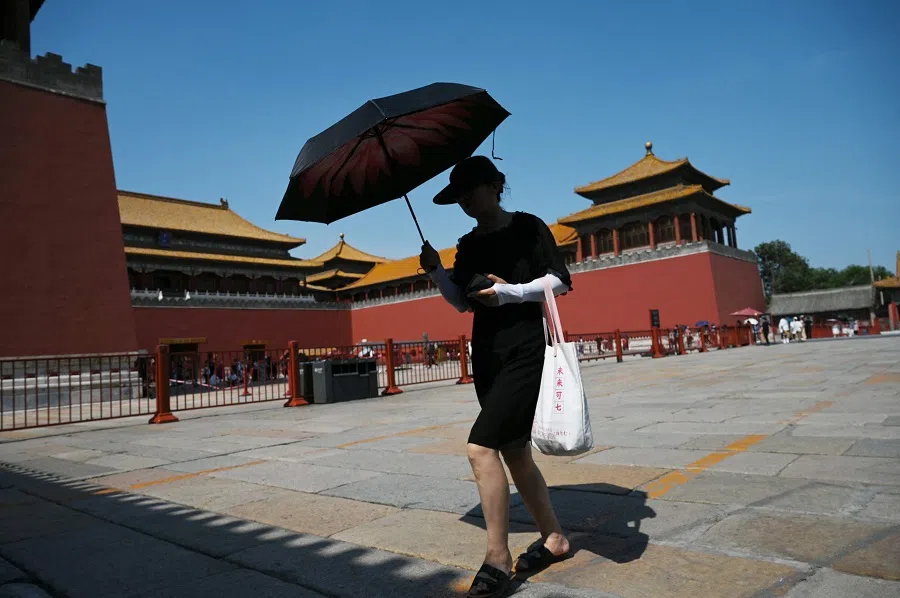
But traditional politics is incomplete without the Confucian ideal of "benevolent governance" and virtuous rulers. Although these are soft constraints for emperors and powerful officials, they nevertheless had to be used to maintain the image of the court's benevolence, otherwise it would lose its "Mandate of Heaven".
Rule by virtue emphasises the role models of emperors and figures such as Yao, Shun, Dayu, Lao Laizi and the protagonists in the Confucian text Twenty-Four Paragons of Fillial Piety. Traditions such as recommending officials to the court on the basis of personal virtue and integrity and erecting chastity archways embody Confucian ideals.
It is precisely because of these commonly recognised standards that there was the imperial censorate system and the code of conduct for civilian officials to "remonstrate to the death" and for military officials to "fight to the death".
The basic power structure of the totalitarian system imported from the Soviet Union has remained to this day, and Xi Jinping has vowed to "resolutely not change what should not be changed".
This classical symphony had new variations in the communist era. Before the reform and opening up, the modern "totalitarianism" replaced the old "absolutism" because after the Great Chinese Revolution destroyed both the infrastructure and superstructure of the traditional society, the CCP wanted to build a new ideal society.
Everything from thought to speech and behaviour must be controlled in order to create a "new socialist man". But this was a utopian project, and Mao spent his whole life trying to find a system that could replace the traditional one. Instead, he brought catastrophe to the nation, including the Great Leap Forward and the Cultural Revolution.
The basic power structure of the totalitarian system imported from the Soviet Union has remained to this day, and Xi Jinping has vowed to "resolutely not change what should not be changed".
In a totalitarian system, the ruling party has much tighter control over society and individuals than in the old autocracy; mobilisation and campaign are the basic modes of operation of this system, which emphasises the unity of thought, will, programme and action under the leadership of the party.
The traditional rule by virtue has evolved into the communist rule by role models, that is, constantly putting forward heroes and models according to needs, such as surgeon Norman Bethune, soldiers Zhang Side and Lei Feng, politicians Jiao Yulu and Xing Yanzi, writer Zhang Haidi, and official Kong Fansen. In Mao's words: "The power of role models is infinite." The "fear" factor in the traditional statecraft is re-incarnated in the "dictatorship of the proletariat", reaching its zenith with the red terror of the Cultural Revolution.
Xi and Mao share the same objective: preventing the ruling party from degenerating into a privileged class divorced from the masses, and eventually being abandoned by the people like the Communist Party of the Soviet Union.
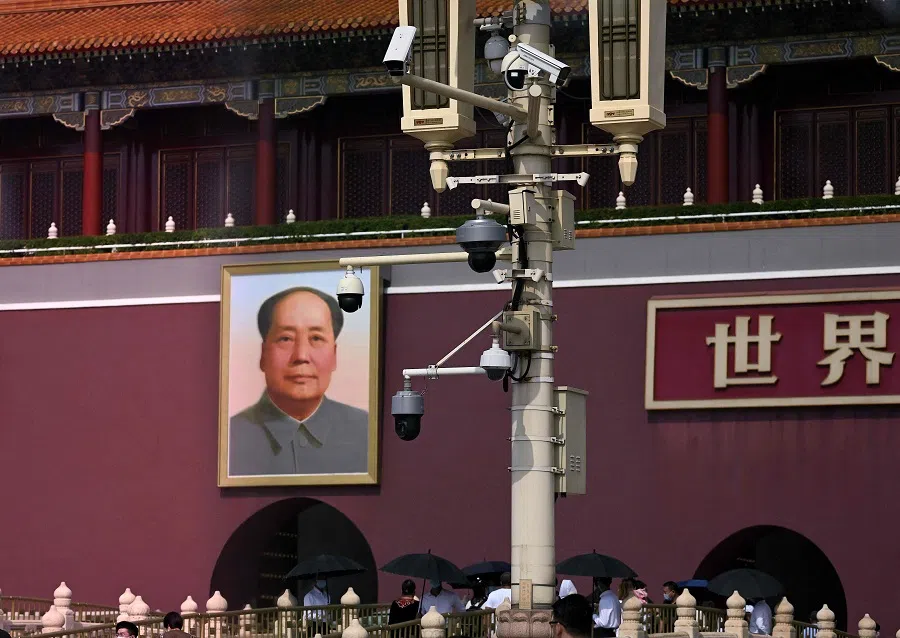
However, the vast bureaucratic system used to run the totalitarian model produced the results diametrically opposed to Mao's revolutionary goals - a privileged class riding rough shots over the people, dubbed by Mao "the new bourgeoisie".
Mao's reaction was predictable: mobilise the masses to rebel. However, this was not a long-term solution, because it was destruction rather than construction, in which the party organisation was also smashed to pieces.
After Mao's death, party organisation, which had not been able to fully recover in the post-Mao rectification, was again badly eroded by the marketisation of reform and opening up and by globalisation. And this is the historical backdrop of Xi Jinping's large-scale party rectification and party building in the past decade.
Xi and Mao share the same objective: preventing the ruling party from degenerating into a privileged class divorced from the masses, and eventually being abandoned by the people like the Communist Party of the Soviet Union.
But Xi's method is not to mobilise the masses in rebellions (perhaps because he himself was a victim of the Cultural Revolution), but to walk on two legs: one is to establish an all-encompassing system of strict top-down supervision and accountability, and the other is to restore the ideological faith of cadres and party members. Both legs have encountered insurmountable difficulties, so much so that he has to, going against Mao, reintroduce Chinese cultural traditions.
... the all-encompassing system, strict discipline, supervision and accountability have squeezed the autonomy of cadres and localities, choking a vital engine of innovation.
New social reality
Contemporary China is a market-oriented society, and there is a problem of compatibility with the centralised system of the party-state that was designed for the planned economy and the transformation of people. The reforms of the past ten years have innovated in institutional details and major policies, but they have remained conservative in terms of basic structure and the relationship between the party-state and society.
The difficulty encountered in Xi's first leg is that his large-scale centralisation of power, the all-encompassing system, strict discipline, supervision and accountability have squeezed the autonomy of cadres and localities, choking a vital engine of innovation. The phenomenon of cadres "lying flat" became pervasive.
... the "Beipiao" tribe (北漂族 those struggling to get a career started in the capital), the "lying-flat" tribe (躺平族 those who give up), etc., have nothing in common with the "communist successor" expected by the party. And that is the social reality.
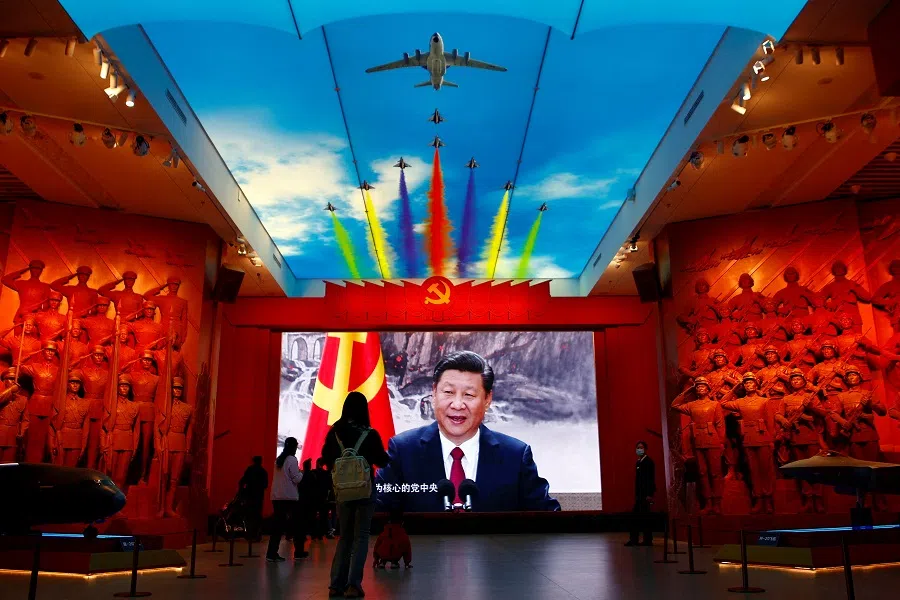
The difficulty encountered in Xi's second leg is also a compatibility problem, that between the incentive mechanism of the market and the communist ideal. Even in the Mao era, the CCP's promotion of selflessness, whole-heartedly serving the people, loyalty to the party, and the spirit of struggle and self-sacrifice had not been able to sink into the culture and reach the level of institutionalisation of Confucianism in traditional society, rendering the creation of "new socialist man" a castle in the air.
The forward-looking nature of the vanguard party is in stark contrast to the conservatism of Confucianism. The latter proposed a set of unified and practical norms and evaluation standards, while the former's is too abstract and out of touch to be institutionalised.
After market rules and complex interest relations permeate society, divisions and a lack of consensus and common accepted standards ensue. When party membership as a self-identifier is reduced to the second- or third-tier identity vis-a-vis people's jobs, occupations, careers and membership in other organisations, and when the ruling party no longer controls all the resources and opportunities in society, it is impossible to make the kind of demands of party members and cadres (numbered almost 100 million) as those in a genuine totalitarian setting.
The young people in the "blank paper protest", as well as the star-chasers, the ant tribe (those living in cramped basements), the "Beipiao" tribe (北漂族 those struggling to get a career started in the capital), the "lying-flat" tribe (躺平族 those who give up), etc., have nothing in common with the "communist successor" expected by the party. And that is the social reality.
It is equally futile to try to recreate the aura of the mythical "great leader", no matter how hard the propagandists of the party chant "Four Consciousnesses, Two Upholds, Two Establishes", as Chinese politics is undergoing secularisation.
In addition, no matter how ardently the CCP asserts that China owes its success in the reform and opening up era to Marxism (i.e. in Xi's word, "Marxism delivers"), under the new technological revolution spear-headed by artificial intelligence, the future of human society and even humanity itself is hanging in the air, defying the teleology of Marxism. So, should the CCP stick to an orthodoxy that was born 150 years ago and forge on along the same track no matter what, or adopt a realistic and open attitude towards the future?
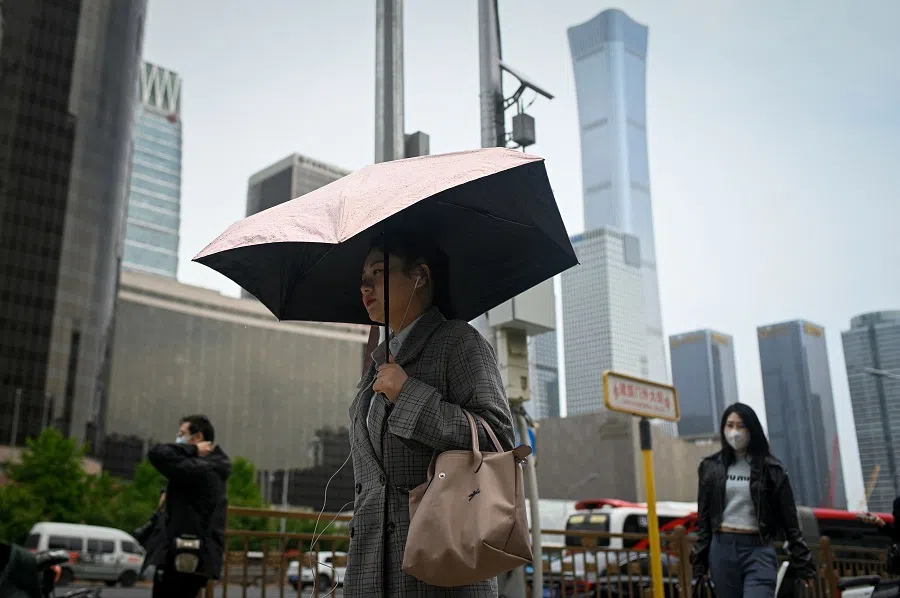
When the material well-being of a society reaches a certain level, there will be a political turning point. China's new generations are well-educated, well-informed, and have broad experiences as well as autonomy to form independent opinions in life.
Official views are no longer regarded as authoritative as they used to be, and it is inevitable that the credibility of public authorities will be questioned. It is equally futile to try to recreate the aura of the mythical "great leader", no matter how hard the propagandists of the party chant "Four Consciousnesses, Two Upholds, Two Establishes", as Chinese politics is undergoing secularisation.
Key points in political transformation
There are several key points in this inevitable process, which can contribute to a new political civilisation if handled well. The first is to avoid falling into the quagmire of Western-style electoral politics. The government's lack of moral authority is an important reason for the political turmoil in many liberal democracies. At its root, excessive emphasis on rights, freedom and equality have led to uncompromising identity politics, social divisions, and ideological polarisation.
In Chinese cultural tradition on the mainland, if there are disrespectful phenomena such as pointing at the leader's nose and slapping the president in public (as happened to French President Emmanuel Macron), great chaos and breakdown of order can be expected. The "overthrow everything and all-out civil war" of the Cultural Revolution resulted in part from the disintegration of authorities. In a post-reality and post-truth era of self-media, reliable moral authority is a precious asset of any polity, but how to establish and maintain it is a huge challenge.
This involves democratic transformation and reimagining the relationship of government to society and individuals - areas where innovation is currently lacking in China.
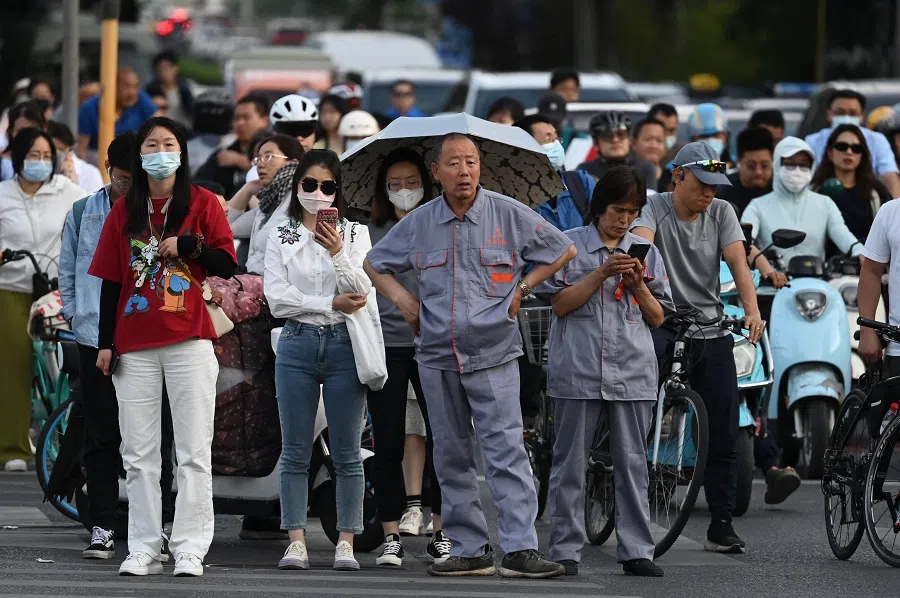
The second is the place of fear in statecraft. Fear is at the heart of traditional authoritarianism and is widely used in modern Chinese politics. However, absolutism of the emperor is no longer feasible because it triggers backlash at home and abroad.
Removing fear necessarily leads to a transformation in statecraft and leadership style - leaders must learn other political skills to replace intimidation and violence.
In this regard, the transformation of Singapore is enlightening. Founding Prime Minister Lee Kuan Yew witnessed the effectiveness of fear from the Japanese occupation authorities; he once said: "If nobody is afraid of me, I am meaningless."
In the 2011 general election, when the situation in some electoral districts was not going well for the People's Action Party, he used the old method of "threatening" voters with the possibility that they could regret their choices. But this backfired. Soon after, Prime Minister Lee Hsien Loong said "our style has changed". In his speech at the 2013 National Day rally, he used three popular songs to describe the relationship between his government and the people. The first song: "Do You know I'm Waiting for You?"; the second song: "I am by Your Side"; the third and most important song: "Will You Still Love Me Tomorrow?"
Third, when coercion no longer works, persuasion and the rule of law must be used instead. This requires some level of national consensus and commonly accepted standards, something achieved by Confucianism in traditional Chinese society - this is probably an important reason for the CCP to re-embrace Chinese cultural traditions.
The national consensus in modern society can only be achieved through democracy in a broader sense (e.g. what the CCP calls "whole-process democracy"), and replace fear as the new basis for moral authority and common standards. It is difficult if not impossible for Marxist classics that accentuate class struggle to achieve the status of Confucian classics that emphasise peace and harmony in guiding everyday behaviour.
To truly practise whole-process democracy entails reforming the political system designed to pursue a future ideal society, while preserving its institutional advantages of "overseeing the overall situation and coordinating all parties" and long-term planning and timely responses to changing situations. This involves democratic transformation and reimagining the relationship of government to society and individuals - areas where innovation is currently lacking in China.
This article was first published in Lianhe Zaobao as "中国政治正在嬗变".
Related: Why is China struggling with identity politics both within and outside the nation? | CCP's official ideology may be hampering China's rise | Can the CCP truly serve the people? | China's elderly rulers must get used to the young criticising them | China wants to create a new democratic system. Is that possible? | The Chinese ruling party needs a new pact with the people to forge a more humane and self-confident nation





